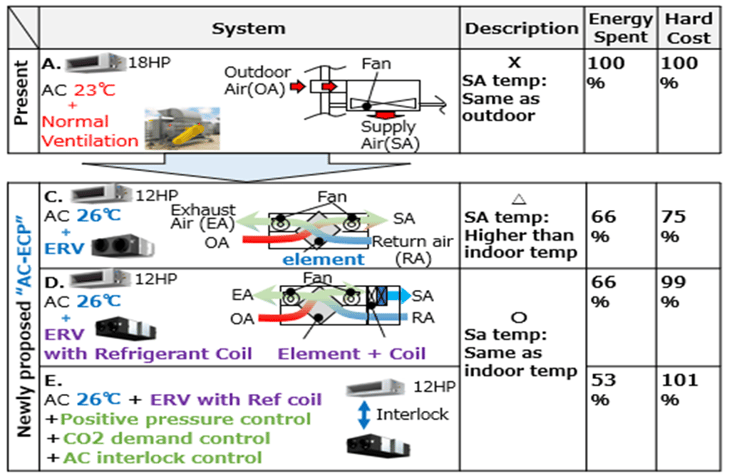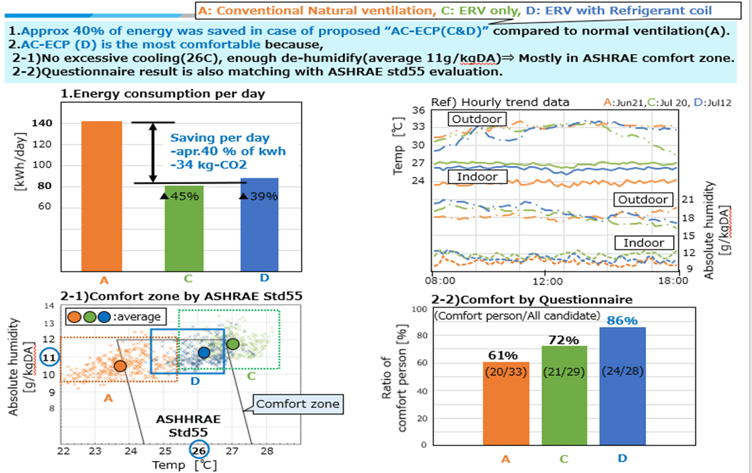Flagship Project: Healthy and Energy Efficient AC System
Introduction
- Home
- CEFIA Flagship Projects
- FP-Healthy and Energy Efficient AC System
Introduction
As we move toward a decarbonized society, the transition to renewable energy such as solar power is inevitable. At the same time, the development of energy-efficient buildings is also essential. The majority of energy used in a building comes from air conditioning. Therefore, it makes sense to reduce energy usage. AC energy consumption has been growing due to increased ventilation rates resulting from the spread of the Corona virus. Electricity costs have also skyrocketed in recent years due to the unstable international situation. From now on, we believe that the Healthy and Energy Efficient Air Conditioning System for ASEAN is necessary for a greener future.
There is also an issue rooted in ASEAN culture: people demand excessive cooling of office buildings. The room temperature tends to be too cool, exceeding the indoor comfort zone (ASHRAE Std55), or people feel uncomfortable due to inadequate dehumidification. For example, we have seen that people who stay in the room longer wear jackets because it is too cold, since the AC temperature in the room is set to 23 ºC.
To live with Covid-19, people are more aware of keeping indoor air clean by ventilating to help prevent infection. That is why we propose AC-ECP: Air Conditioning System with Excessive Cooling Protection, to achieve both energy saving and comfort by maintaining optimal indoor temperature and humidity.

Unlike conventional ventilation, which only uses a fan to bring in outside air without any treatment, this system makes it possible to provide you with comfort even at 26°C to remove heat load and humidity by replacing the conventional fan with Energy Recovery Ventilation (ERV). Simply raising the room temperature from a too-cool setting, such as 23°C, to 26°C can save a lot of energy and improve people's health. In addition, the initial cost of implementing this new system is almost the same as the existing system. We are confident that this is a simple and feasible AC system for a decarbonized society.
At the 5th CEFIA, held in Bali, Indonesia on August 25, we reported the successful outcome of our verification of AC-ECP in Thailand as a CEFIA flagship project: we were able to achieve about 40% energy savings of the test property in the first half of 2023. While conducting demonstration tests of AC-ECP with cooperating universities, we will be promoting our new concept in ASEAN countries through the CEFIA platform.
Demonstration Results in Bangkok, Thailand

Activities
- Proposed AC-ECP at the 4th CEFIA Forum as a simple and feasible solution for the coming carbon neutral era.
- Presented the result of AC-ECP verification performed on properties in Bangkok, Thailand in the first half of 2023 at the 5th CEFIA Forum.
- Plans to disseminate the results of the Thailand demonstration to ASEAN countries through the CEFIA platform to develop recognition for AC-ECP.
- Will establish a demonstration site in Vietnam and conduct workshops. Allows visitors to see the site, share the results of our verification, so they can see the operation of AC-ECP, which is key to achieving carbon neutrality. (Scheduled for August 2024)
